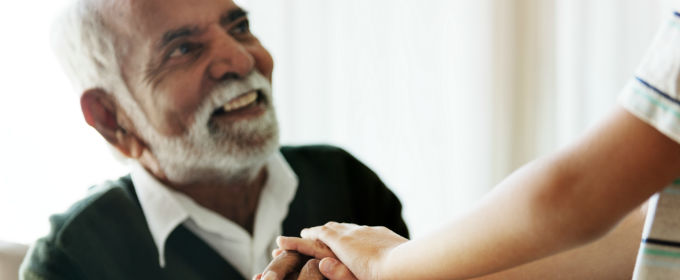Researchers Dr Camilla Lewis and Natalie Cotterell from The University of Manchester outline the key findings from their report into isolation among older Black, Asian and Minority Ethnic (BAME) people in Greater Manchester.
- Earlier this year Greater Manchester was recognised as the UK’s first age-friendly city-region. However, economic, social and health inequalities remain entrenched among the city’s ageing population.
- BAME individuals are more likely to experience discrimination, racism, or marginalisation over the course of their lives. This exacerbates ethnic inequalities and may increase the risk of social isolation by limiting social opportunities and interactions.
- The report recommends that policymakers should recognise the differences between and within minority ethnic groups in relation to their experiences of social isolation.
- The report suggests that involving older people from minority ethnic backgrounds in decision making about service delivery may provide a valuable tool for including them in work on social isolation.
The composition of neighbourhoods in Greater Manchester is expected to change significantly over the next twenty years. With increasing ethnic diversity, the growth of single-person households and smaller family sizes, it is anticipated that the number of older people living alone will expand rapidly. This may lead to an increase in levels of social isolation amongst older people from minority ethnic backgrounds. How can services adapt to meet the news of the increasingly diverse, ageing population?
Impact of social isolation on older people
Social isolation is a universal phenomenon that can be experienced by individuals of all ages and ethnic backgrounds.
Social isolation can be defined as an objective measure reflecting an individual’s lack of contacts or ties with others such as family, friends, acquaintances and neighbours. Social isolation is characterised as an absence or limitation in the quantity of social interactions. It is distinct from the related and subjective concept of loneliness which occurs when there is a perceived discrepancy between an individual’s desired and achieved level of social interaction. Both concepts are characterised by a lack of social connections in the lives of those affected.
Although some symptoms of social isolation are not harmful to long-term health, chronic social isolation – or a persistent lack of social ties – has adverse health effects, such as increasing the risk of cardiovascular disease, stroke and early mortality.
Growing older in Greater Manchester
Greater Manchester’s Age-Friendly approach has become known across the world because of its imaginative and effective partnerships, neighbourhood working and its unique relationship with the city’s universities which puts engagement with older people, their voice and their influence, at the heart of their approach.
Earlier this year Greater Manchester was recognised as the UK’s first age-friendly city-region, a reflection of the research and work being carried out to make Greater Manchester a great place to grow older. However, while significant achievements have been made, economic, social and health inequalities remain entrenched among the city’s ageing population.
What do we know about social isolation among older BAME people?
Current research shows that social isolation takes on different forms according to a range of factors and may be influenced by an individual’s ethnic background.
- Black, Asian and Minority Ethnic (BAME) individuals are more likely to experience discrimination, racism, or marginalisation over the course of their lives. This exacerbates ethnic inequalities and may increase the risk of social isolation by limiting social opportunities and interactions.
- Minority ethnic groups often experience a greater number of health, economic, and social inequalities compared to white groups. Such inequalities accumulate over people’s lives, increasing their vulnerability to social isolation in later life.
- Health inequalities increase the vulnerability of BAME individuals throughout their lives which may result in greater disadvantages in later life, increasing the risk of social isolation. But it is important to acknowledge differences within and across BAME groups. The risk of social isolation is not the same amongst all minority ethnic groups.
- An individual’s environment and the surrounding community can influence their social network in a variety of ways. Some neighbourhoods promote healthy ageing and strong communities; others may increase the risk of social isolation in later life through lack of amenities, poor transport and inadequate housing.
- Due to ethnic inequalities, BAME individuals are more likely to live in deprived communities which may result in fewer opportunities for social participation. This may increase the risk of becoming isolated in later life.
Addressing social isolation
Minority ethnic groups bring considerable resources to their local communities: stimulating the growth of community groups, providing support to vulnerable groups, and encouraging different types of cultural participation. Hence, it is important for policy-makers and service-providers to consider the challenges facing older people both now and in the future, their families and the communities in which they live.
Increasing social participation and social connectedness contribute to the well-being of older adults. Belonging to a social network makes people feel cared for, loved, esteemed and valued, this having a powerful protective effect on health, and a decreased use of health and social care services.
The report recommends that policymakers should recognise the differences between and within minority ethnic groups in relation to their experiences of social isolation. It also suggests that involving older people from minority ethnic backgrounds in making decisions about service delivery may provide a valuable tool for including seldom heard people in work on social isolation.
Cultural and community organisations could play a bridging role by facilitating access to services and raising awareness about older people’s rights. Gaining access to BAME groups is challenging but working with older volunteers and community groups offers potential opportunities to reach the most vulnerable.
With changing demographics and an ageing population, social isolation among BAME communities is becoming an even more pressing concern in Greater Manchester. There is an urgent need for policymakers to focus their attention on practical interventions to address this issue.
The report can be accessed: https://www.ambitionforageing.org.uk/social-isolation-and-older-people-black-asian-and-minority-ethnic-people-greater-manchester-%E2%80%93-new
